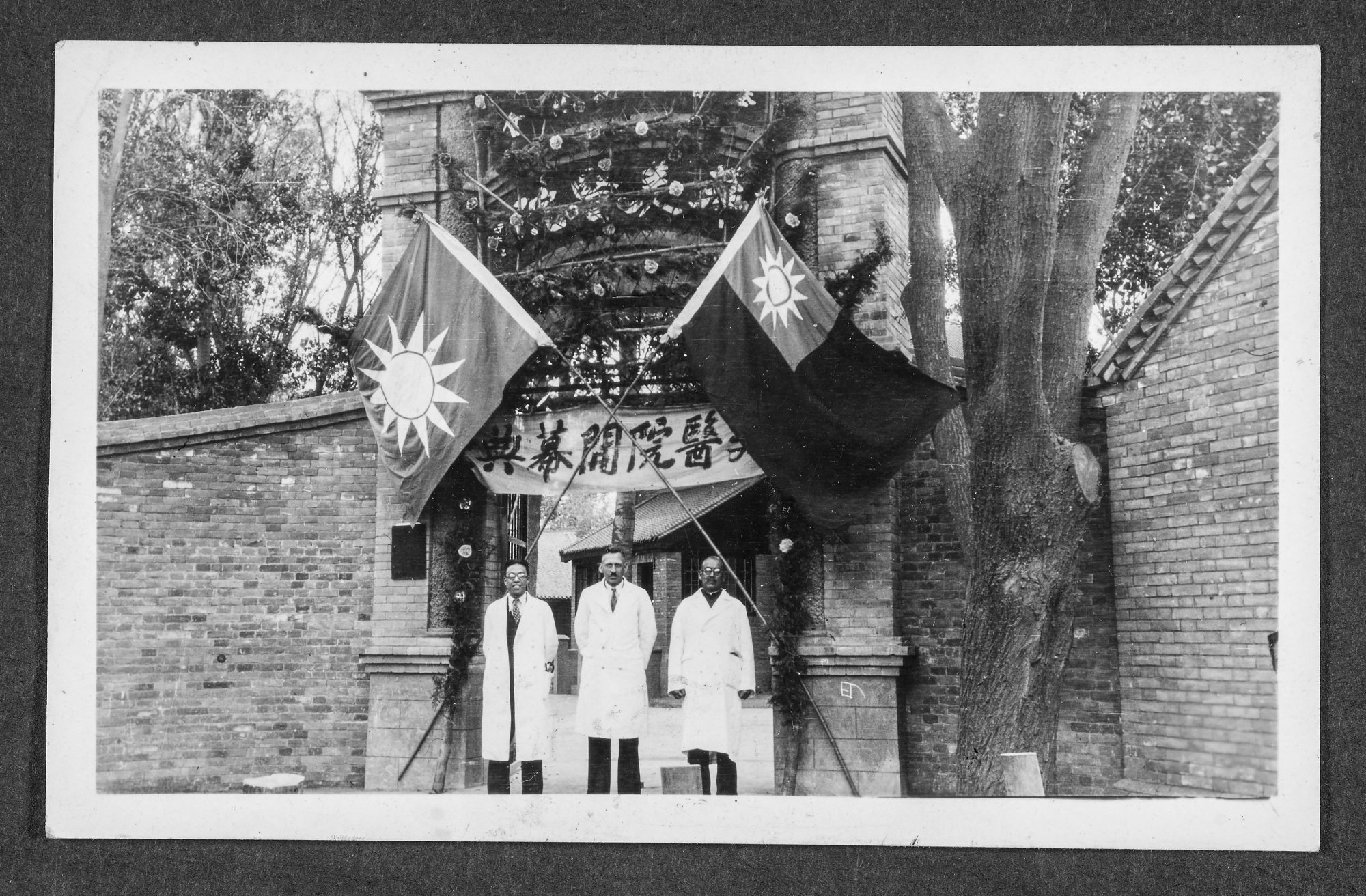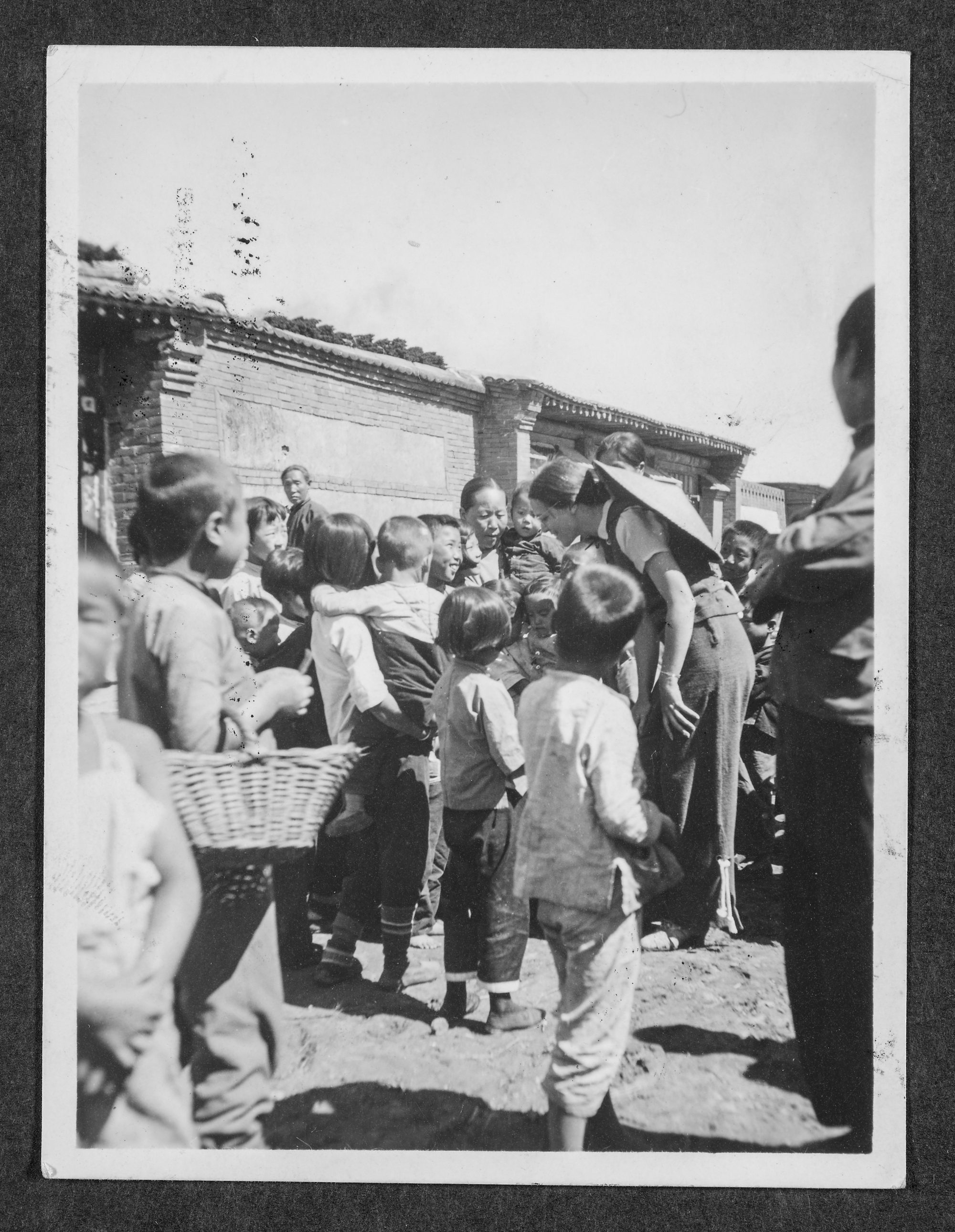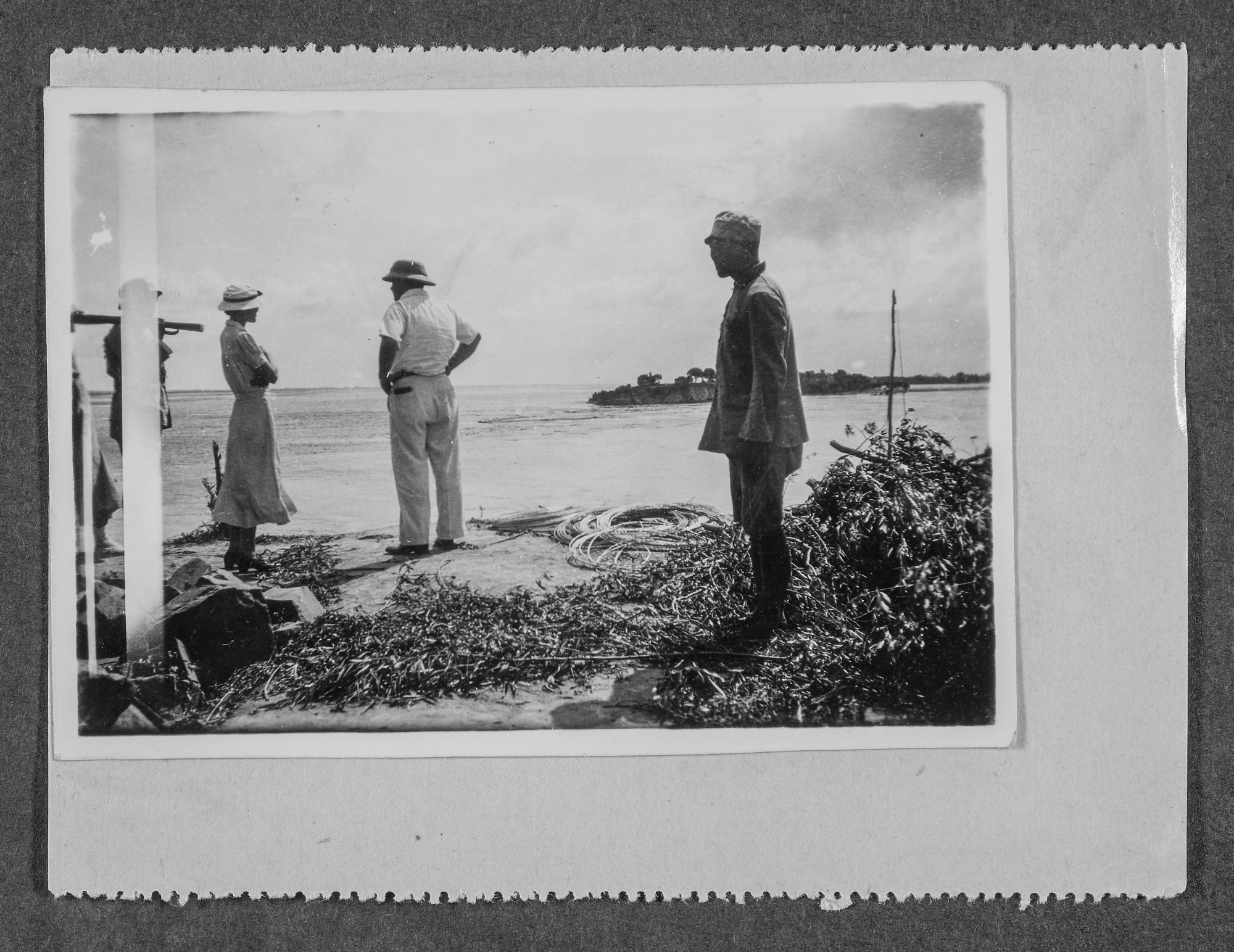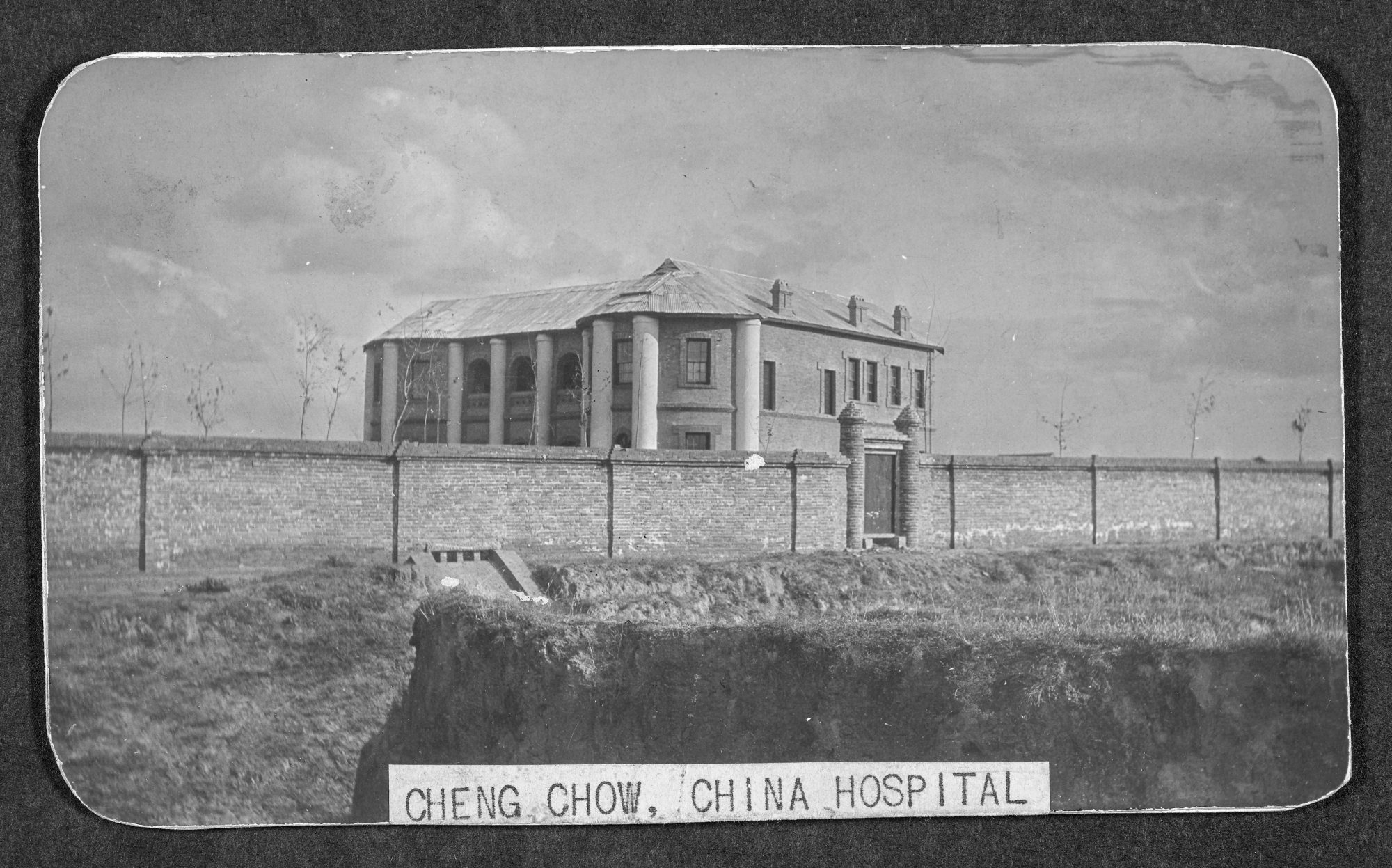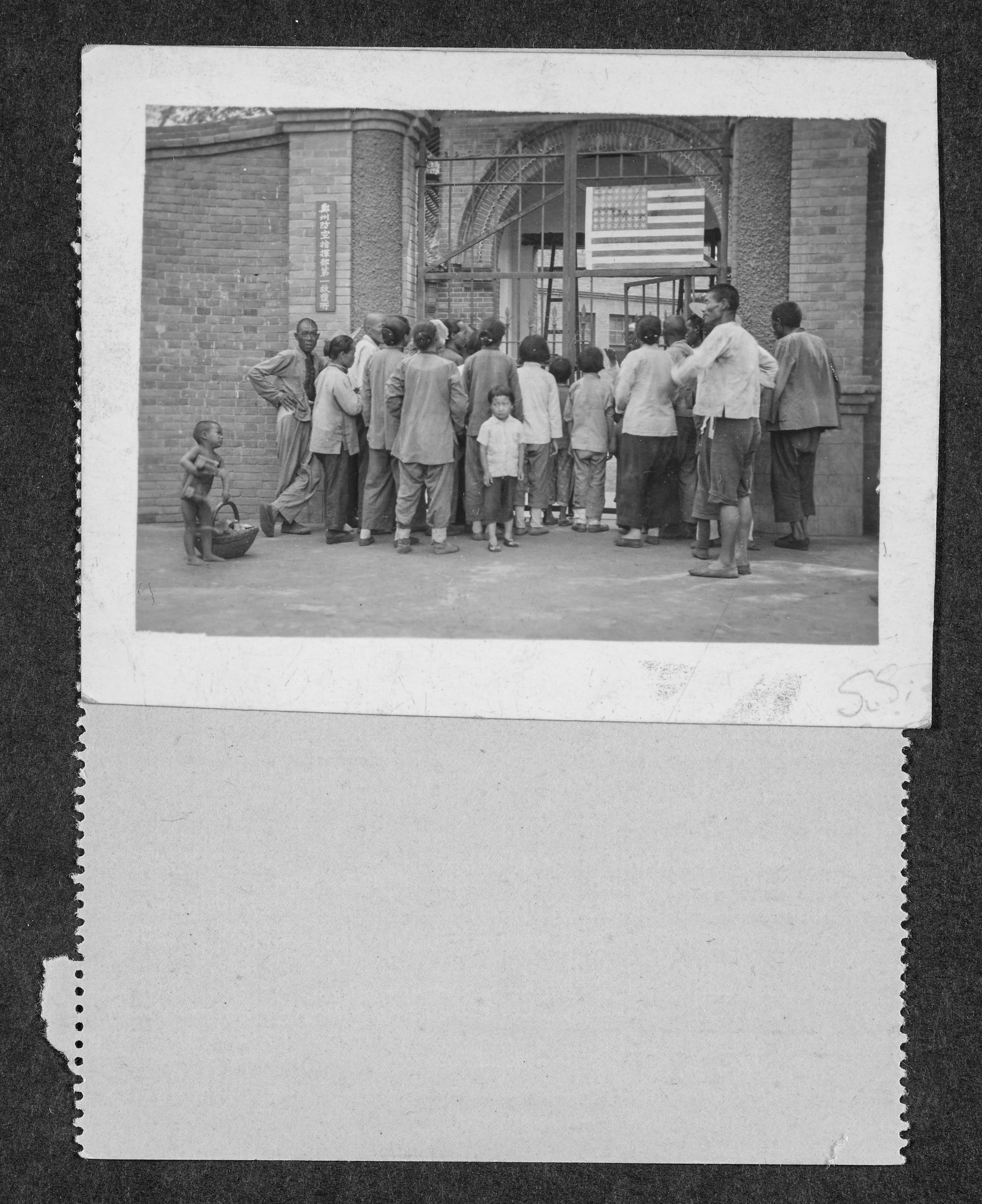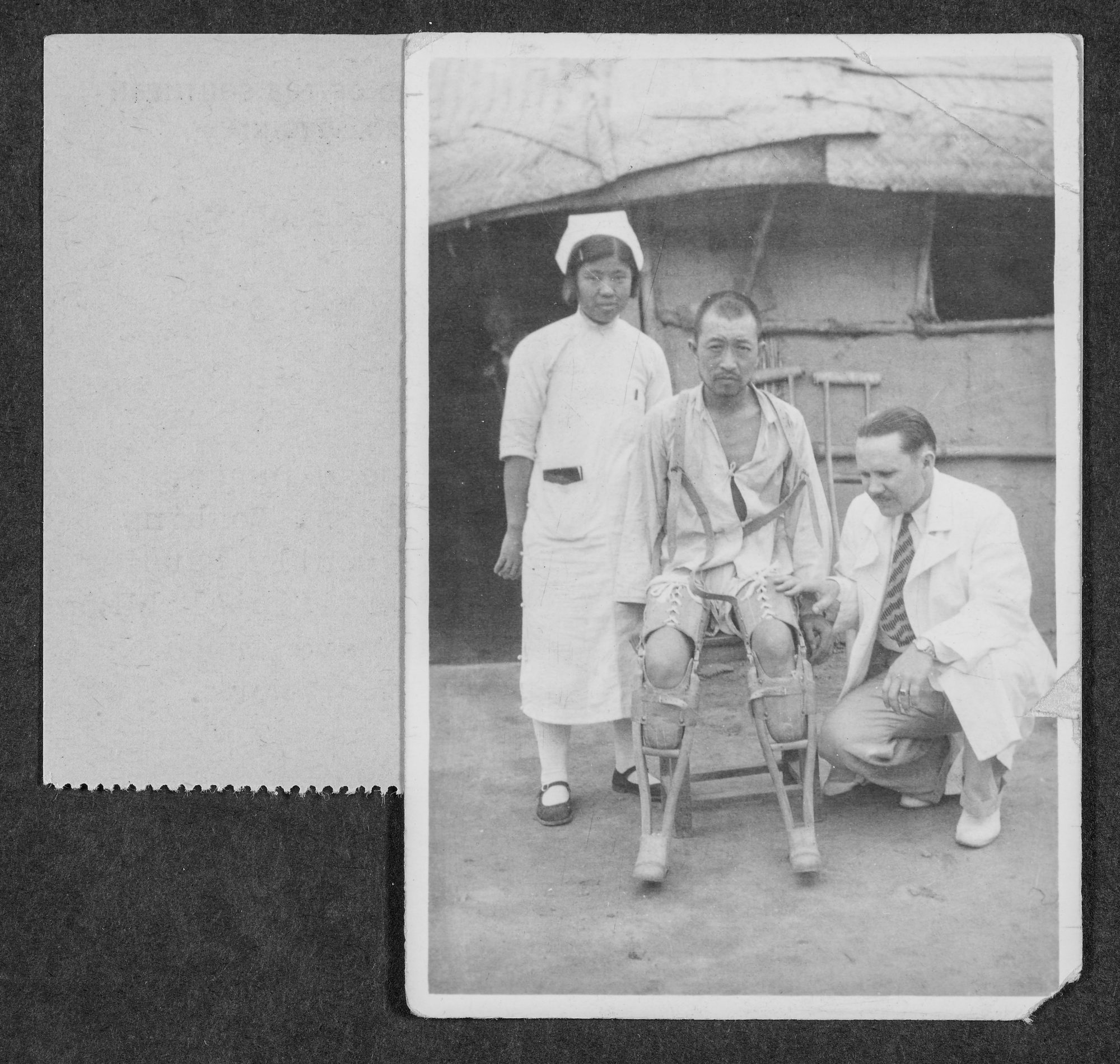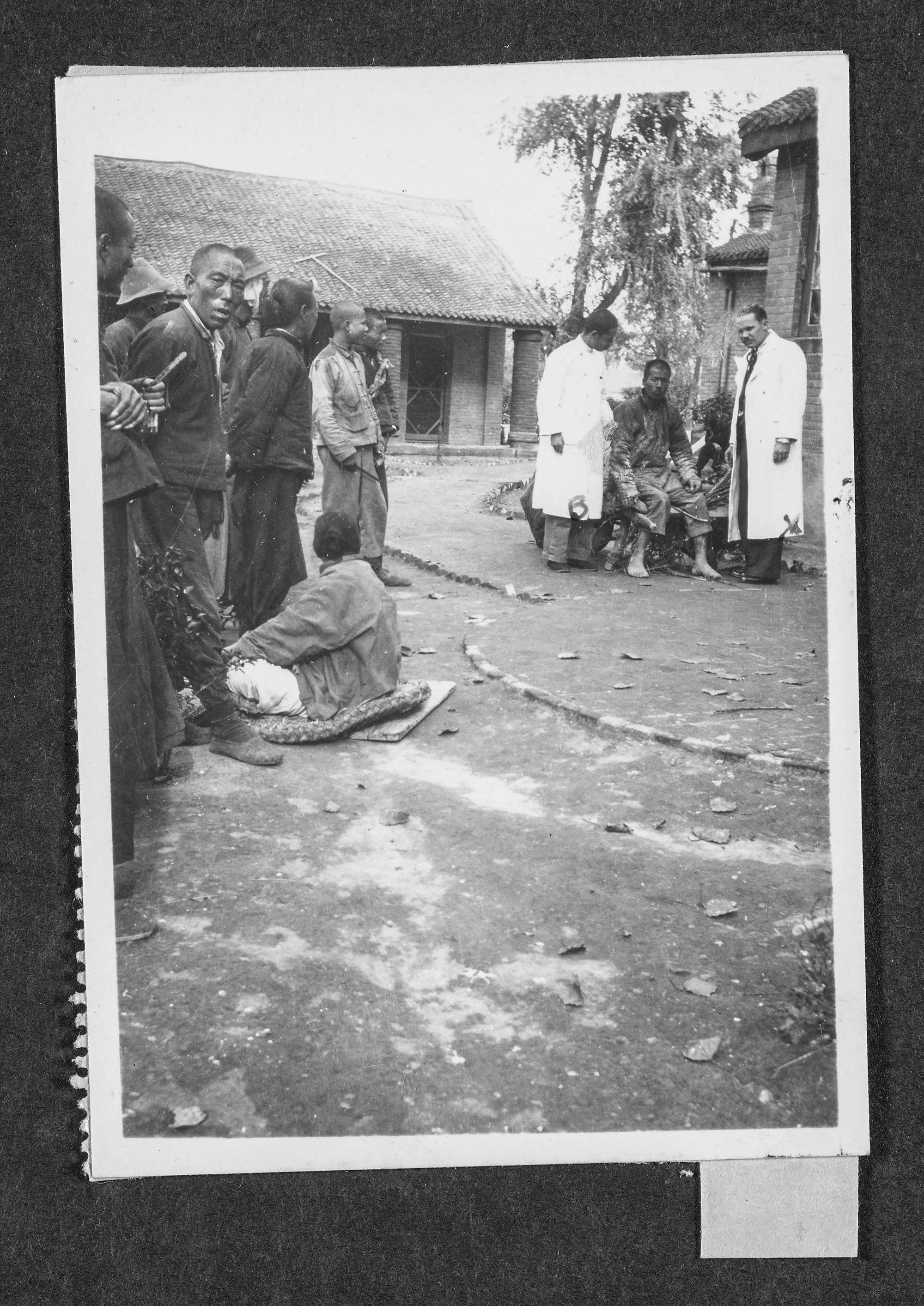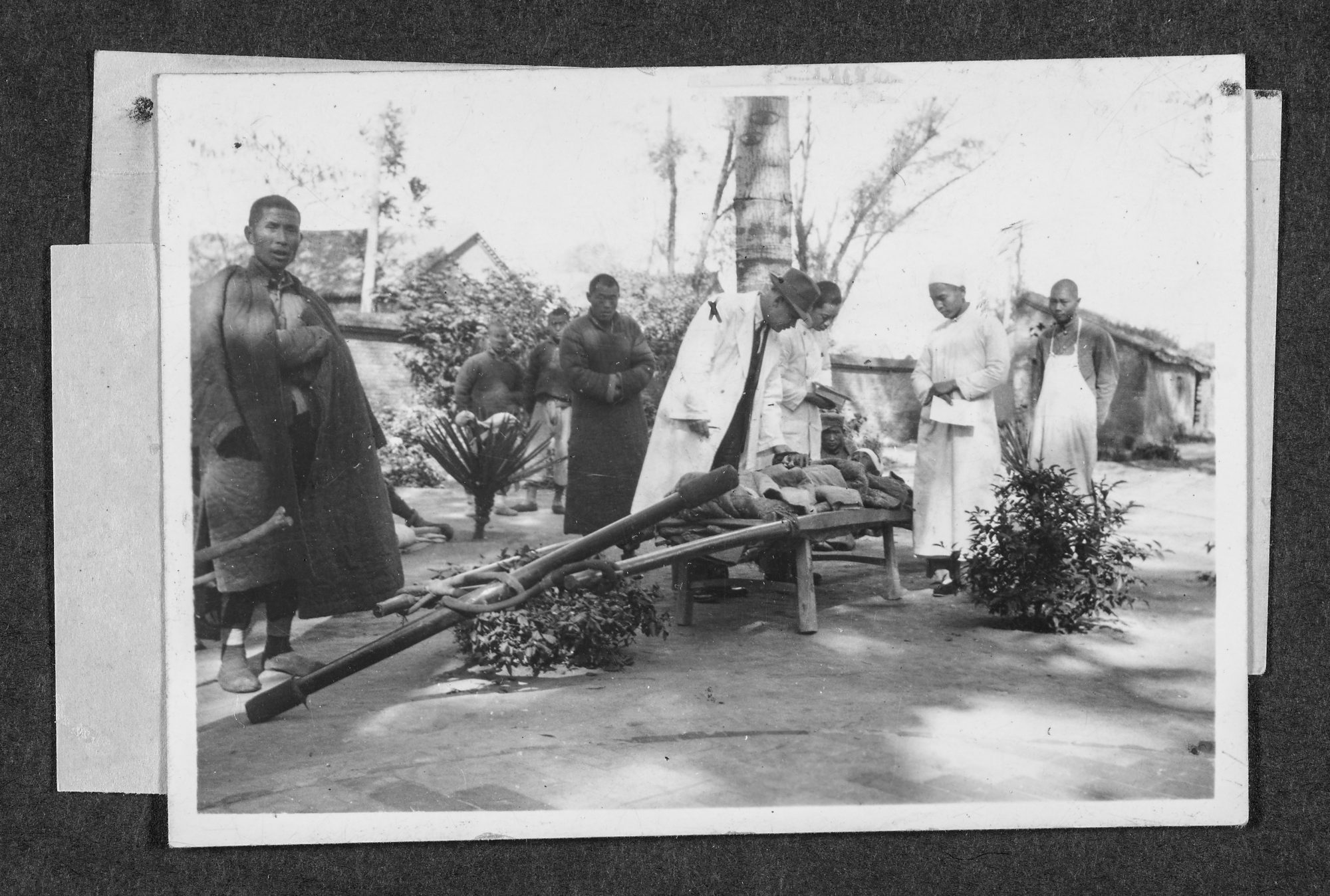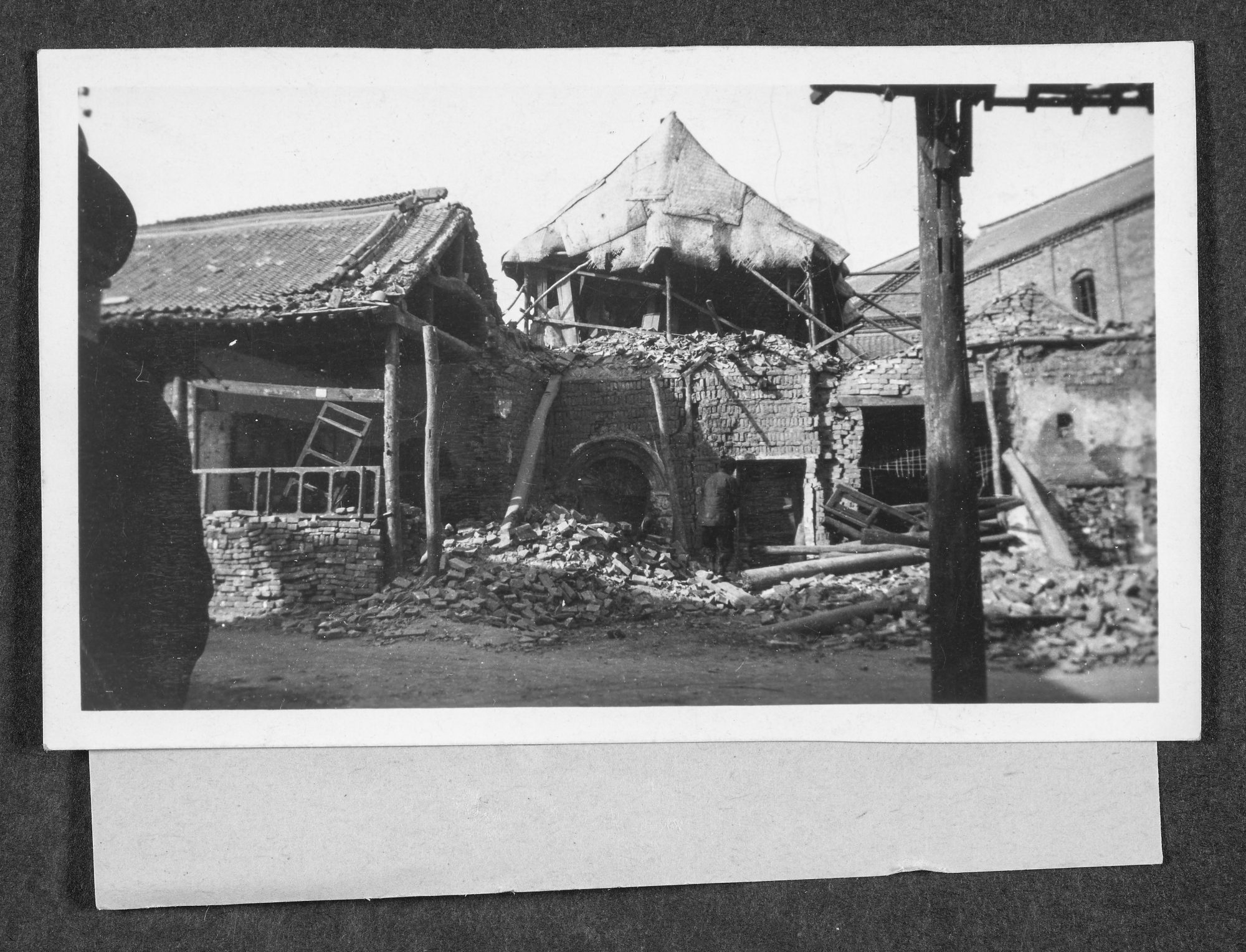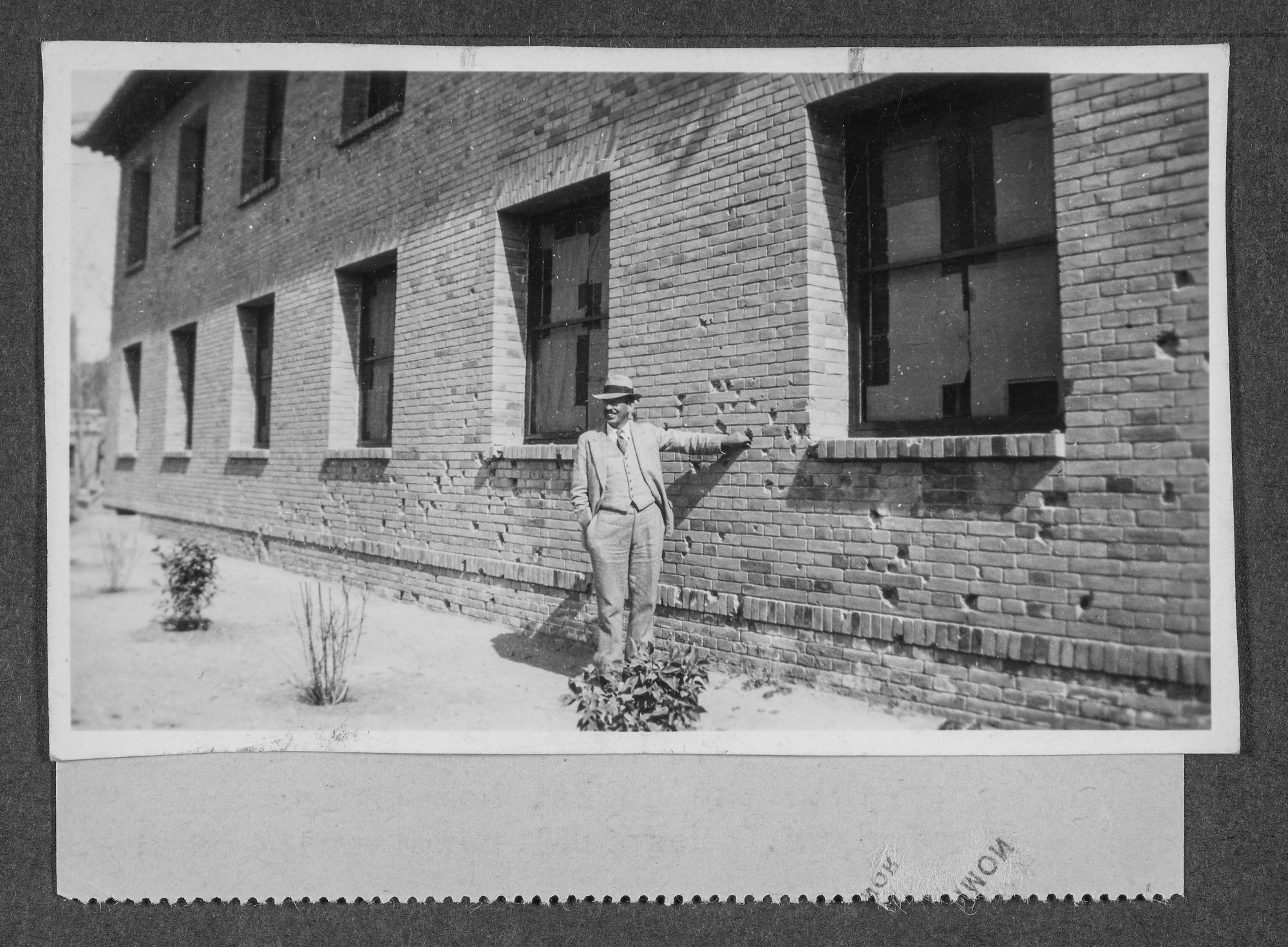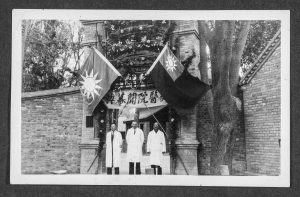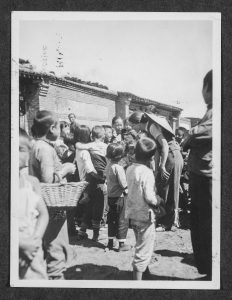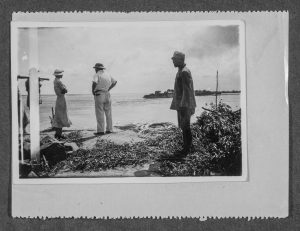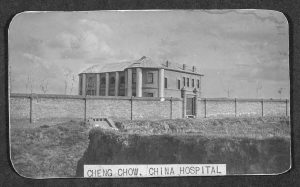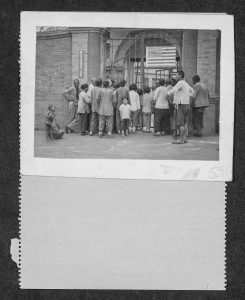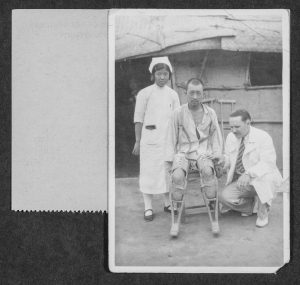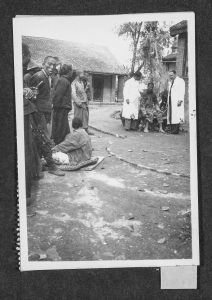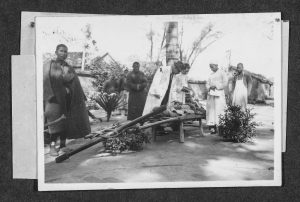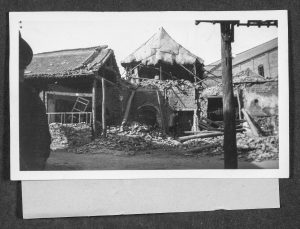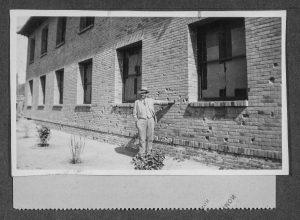In the middle of February Chengchow got its first storm of fire. Twenty-four Japanese planes came over at dawn and rained about two hundred bombs on the city. The destruction of lives and property was terrific, over twelve hundred being killed and wounded. Four bombs landed on the [Baptist] hospital compound, damaging some of the buildings and slightly wounding four patients. That was a day that will long be remembered by the staff here as we labored all day caring for the wounded. …
The first bombing was the worst, but many followed – so many that we lost count of the number. Twice the hospital compound has been hit, with the complete destruction of one Chinese doctor’s residence, and damage to other buildings and walls. We now have very few window-panes as glass cannot be bought here. The windows are pasted with oiled paper to keep out the cold and rain. We had a patient in one of our mat sheds killed, one nurse slightly wounded, and several patients wounded.
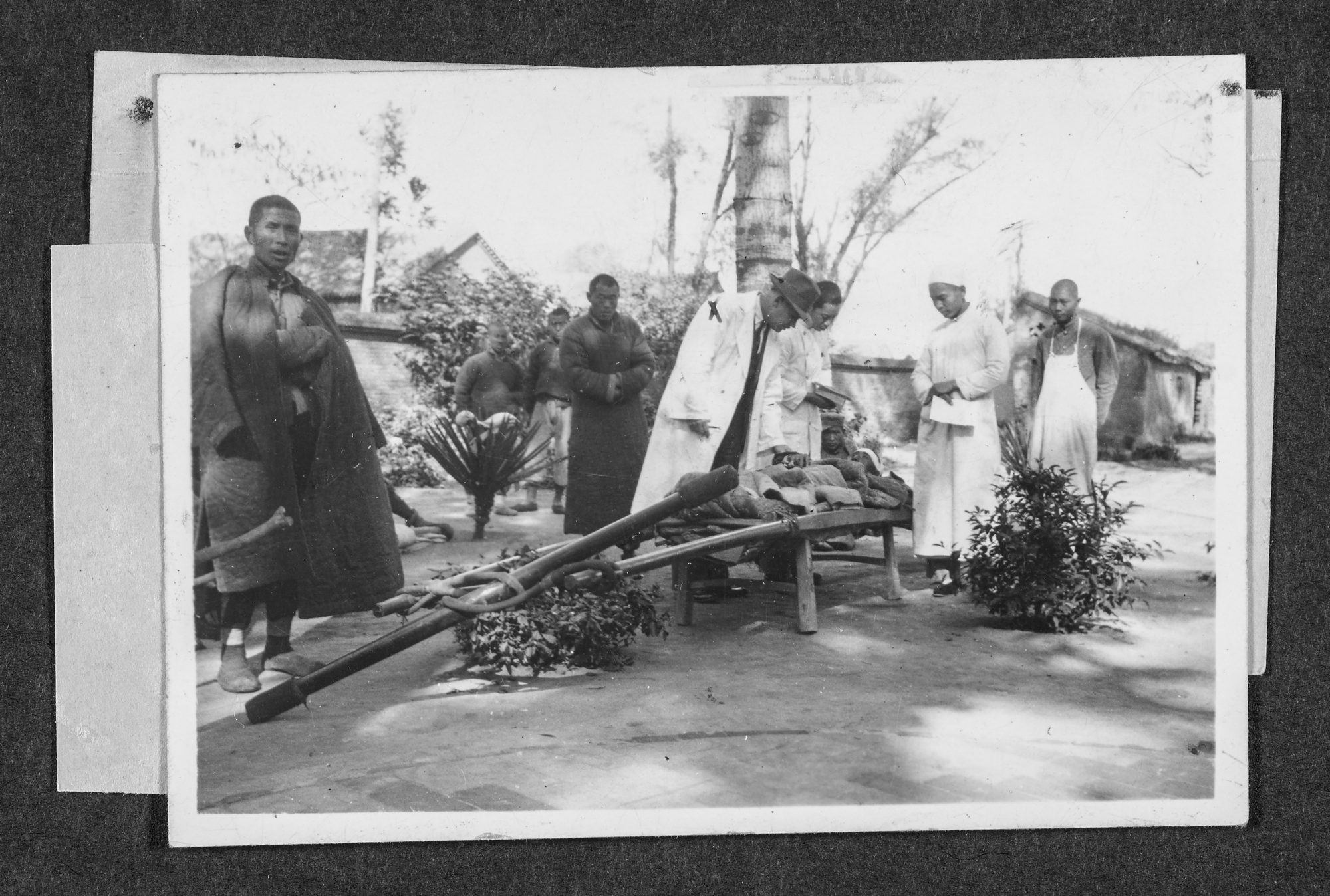
One problem has been that of the refugees, that ever flowing, never ending stream of hopeless humanity that has continually come through Chengchow. …
Since the Sino-Japanese war started, Chengchow has … received more refugees than any city in the Lunghai and Peiping Railroad areas. Literally millions of these unfortunate people have passed through or stayed here. At present about three-fourths of the Chengchow population is refugees.
The government has done a great deal to care for these unfortunates, but a large part of the work has fallen on missionaries. A refugee committee with representatives of all the missions working in Chengchow was formed. Evangelistic and medical work has been done in all camps, and much food and clothing distributed.
As the year closes the missions have one camp with over a thousand refugees, and are contemplating two more camps and a school for children. The finances have been furnished by Baptists at home through the Foreign Mission Board, through funds from the American Advisory Committee in Shanghai, International Red Cross, the National Council, and a grant from the Chinese government.
There are still thousands uncared for and almost every day and night people starve or freeze on the streets. We pray for ability, funds, and personnel to meet the situation in a more adequate way.
Excerpted from “Praises for Triumph in the Midst of Terror in Interior China!” written in part by Dr. Sanford Emmett Ayers, Foreign Mission Board Ninety-Fourth Annual Report, May 17, 1939.


